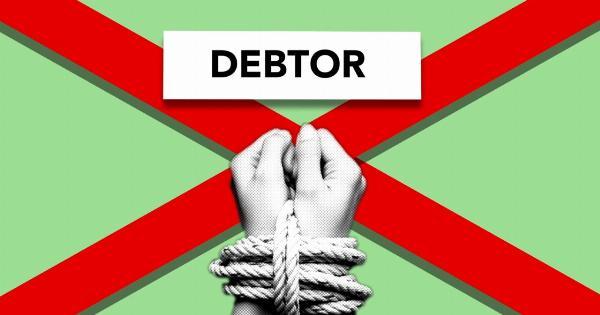The global financial crisis of 2008 had a profound impact on people’s lives, not only economically but also emotionally.
Many individuals experienced a sense of despair, hopelessness, and anxiety as they faced unemployment, foreclosure, and financial instability. This article aims to investigate the relationship between depression and the financial crisis, exploring the psychological repercussions of economic downturns and their potential long-term effects on mental health.
1. The Link between Economic Hardship and Depression
Research suggests a strong association between economic hardship and mental health issues, including depression. As people face financial difficulties, the stress and pressure can significantly impact their psychological well-being.
The uncertainty of the job market, excessive debt, and reduced social support can contribute to feelings of despair and sadness.
2. Financial Stress and Psychosocial Factors
Financial strain not only affects individuals’ personal lives but also their relationships and social interactions.
Those facing economic hardship may experience strained relationships, reduced access to social support systems, and increased isolation. These psychosocial factors can further exacerbate symptoms of depression.
3. The Role of Unemployment
Unemployment rates skyrocketed during the financial crisis, and research suggests a close relationship between job loss and depression.
The loss of employment often leads to a decrease in self-esteem, financial instability, and a sense of purposelessness. The psychological impact of unemployment can be drastic, further contributing to the development of depressive symptoms.
4. Economic Inequality and Mental Health
The financial crisis highlighted existing economic inequalities, which have been linked to mental health issues. Studies indicate that individuals living in economically disadvantaged communities are more prone to depression.
The widening gap between the rich and the poor can lead to feelings of hopelessness and inadequacy, triggering depressive tendencies.
5. Financial Trauma and Post-Traumatic Stress Disorder (PTSD)
For some individuals, the financial crisis constituted a traumatic event that resulted in long-lasting psychological effects.
Post-Traumatic Stress Disorder (PTSD) symptoms, such as flashbacks, nightmares, and hypervigilance, can manifest in response to financial trauma. The experience of loss, financial insecurity, and the upheaval of one’s life can trigger PTSD symptoms, alongside depression.
6. Historical Perspectives on Economic Crises and Mental Health
Examining historical economic crises can provide insights into the long-term mental health effects of financial downturns.
For example, studies on the Great Depression have shown elevated rates of suicide and mental illness during and after the economic collapse. Understanding these historical parallels can help identify potential interventions and support systems for individuals affected by the recent financial crisis.
7. The Role of Government Policies and Mental Health Support
During times of economic crises, the role of government policies and mental health support becomes crucial.
Accessible and affordable mental health services can help individuals cope with the psychological toll of financial hardships, ensuring early intervention and preventing long-term mental health consequences.
8. Resilience and Coping Mechanisms
While the impact of the financial crisis on mental health cannot be ignored, it is important to recognize the role of resilience and coping mechanisms.
Many individuals develop adaptive strategies to navigate economic hardships, such as seeking support from loved ones, engaging in mindfulness practices, or pursuing new career opportunities. These factors contribute to the process of recovery and help mitigate the negative effects of depression.
9. Scenarios of Hope: Economic Recovery and Mental Health
As economies recover from financial crises, there is room for optimism regarding mental health outcomes. With increased stability, employment opportunities, and financial security, individuals can experience improved mental well-being.
However, it is crucial to monitor and address any long-term psychological consequences that may persist even after the economic recovery.
10. Conclusion
The relationship between depression and the financial crisis is complex and multifaceted. Economic downturns can significantly impact individuals’ mental health, leading to depressive symptoms, anxiety, and even traumatic responses.
Recognizing the psychological toll of financial hardships is essential for implementing effective support systems and mental health interventions. By understanding this relationship, we can work towards building more resilient societies that prioritize the well-being of individuals in times of economic uncertainty.































